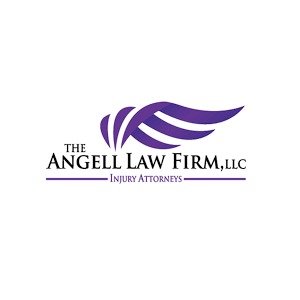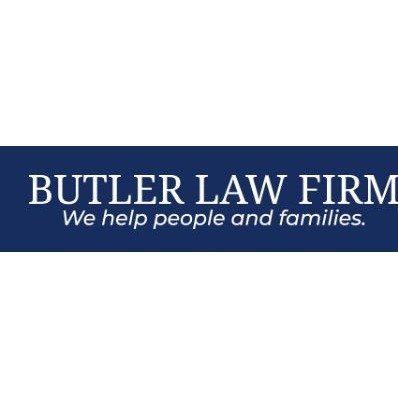Best Personal Injury Lawyers in Atlanta
Share your needs with us, get contacted by law firms.
Free. Takes 2 min.
List of the best lawyers in Atlanta, United States
About Personal Injury Law in Atlanta, United States
Personal Injury law in Atlanta, United States covers legal cases where individuals have suffered harm or injury due to the negligence or intentional actions of another person or entity. Personal injuries can arise from various situations such as car accidents, slip and falls, workplace accidents, medical malpractice, or product defects. The purpose of personal injury law is to hold the responsible party accountable and seek compensation for the injured party's losses, including medical expenses, lost wages, and pain and suffering.
Why You May Need a Lawyer
While you may not always require a lawyer for personal injury cases, it is highly recommended to seek legal help in certain situations, including:
- Severe injuries: If you have suffered serious injuries that require extensive medical treatment or have long-term consequences, a lawyer can help ensure you receive fair compensation.
- Disputed liability: If the other party involved disputes their responsibility or denies fault for the accident, a lawyer can gather evidence to prove liability.
- Insurance company tactics: Insurance companies may try to minimize your claim or offer a settlement that is inadequate to cover your losses. A lawyer can negotiate with the insurance company on your behalf.
- Legal complexities: Personal injury cases involve legal procedures and complexities that a layperson may not fully understand. A lawyer can navigate through the legal system, file necessary documents, and protect your rights.
Local Laws Overview
In Atlanta, United States, several local laws are important to understand regarding personal injury cases. Here are some key aspects:
- Statute of Limitations: In Georgia, there is a time limit, typically two years from the date of the incident, within which you must file a personal injury lawsuit. Failing to do so may result in your case being dismissed.
- Modified Comparative Fault: Georgia follows a modified comparative fault rule, meaning if you are partially responsible for your injuries, your compensation may be reduced proportionately. If you are deemed 50% or more at fault, you may be barred from recovering any compensation.
- Damage Caps: Georgia does not have specific statutes that limit the amount of compensation in personal injury cases, except for medical malpractice cases.
Frequently Asked Questions
1. Can I still file a personal injury claim if the accident was partly my fault?
Yes, you can still file a personal injury claim in Atlanta, United States, even if you bear partial responsibility. However, your compensation may be reduced based on your percentage of fault under Georgia's modified comparative fault rule.
2. Do I need to go to court for a personal injury claim?
Not necessarily. Many personal injury claims are settled through negotiations with insurance companies. However, if a fair settlement cannot be reached, your case may proceed to court. A lawyer can guide you through both settlement negotiations and litigation, if needed.
3. How long will it take to resolve my personal injury case?
The duration of a personal injury case depends on various factors, including the complexity of the case, the extent of your injuries, and the cooperation of the involved parties. Some cases can be settled in a few months, while others may take a year or more. Your attorney will give you a better estimate based on the specifics of your case.
4. What types of compensation can I receive in a personal injury case?
If your personal injury claim is successful, you may be entitled to receive compensation for various losses, including medical expenses, lost wages, loss of earning capacity, property damage, pain and suffering, and emotional distress.
5. How can I afford a personal injury lawyer?
Most personal injury lawyers in Atlanta, United States work on a contingency fee basis. This means they only collect a fee if they win your case, and their fee is usually a percentage of your compensation. Consult with potential lawyers to understand their fee structure and discuss any concerns you may have.
Additional Resources
If you need further assistance or information related to personal injury law in Atlanta, United States, consider reaching out to these resources:
- The State Bar of Georgia - Personal Injury Law Section: (https://www.gabar.org/sectionsprogramsdivisions/sections/personalinjury/)
- Georgia Legal Aid: (https://www.georgialegalaid.org/)
- Georgia Office of Insurance and Safety Fire Commissioner: (https://www.oci.ga.gov/)
Next Steps
If you require legal assistance for a personal injury case in Atlanta, United States, here are the recommended steps to follow:
- Collect documentation: Gather any relevant documents, such as accident reports, medical records, and photographs.
- Consult with a personal injury lawyer: Schedule a consultation with an experienced personal injury lawyer to discuss the details of your case and evaluate your options.
- File your claim: If you decide to proceed, your lawyer will help you file a personal injury claim within the appropriate statute of limitations.
- Negotiate or litigate: Your lawyer will work to negotiate a fair settlement with the involved parties. If a settlement cannot be reached, they will guide you through the litigation process.
- Follow your lawyer's advice: Cooperate with your lawyer, provide any requested information, and follow their guidance throughout the legal process.
Lawzana helps you find the best lawyers and law firms in Atlanta through a curated and pre-screened list of qualified legal professionals. Our platform offers rankings and detailed profiles of attorneys and law firms, allowing you to compare based on practice areas, including Personal Injury, experience, and client feedback.
Each profile includes a description of the firm's areas of practice, client reviews, team members and partners, year of establishment, spoken languages, office locations, contact information, social media presence, and any published articles or resources. Most firms on our platform speak English and are experienced in both local and international legal matters.
Get a quote from top-rated law firms in Atlanta, United States — quickly, securely, and without unnecessary hassle.
Disclaimer:
The information provided on this page is for general informational purposes only and does not constitute legal advice. While we strive to ensure the accuracy and relevance of the content, legal information may change over time, and interpretations of the law can vary. You should always consult with a qualified legal professional for advice specific to your situation.
We disclaim all liability for actions taken or not taken based on the content of this page. If you believe any information is incorrect or outdated, please contact us, and we will review and update it where appropriate.









